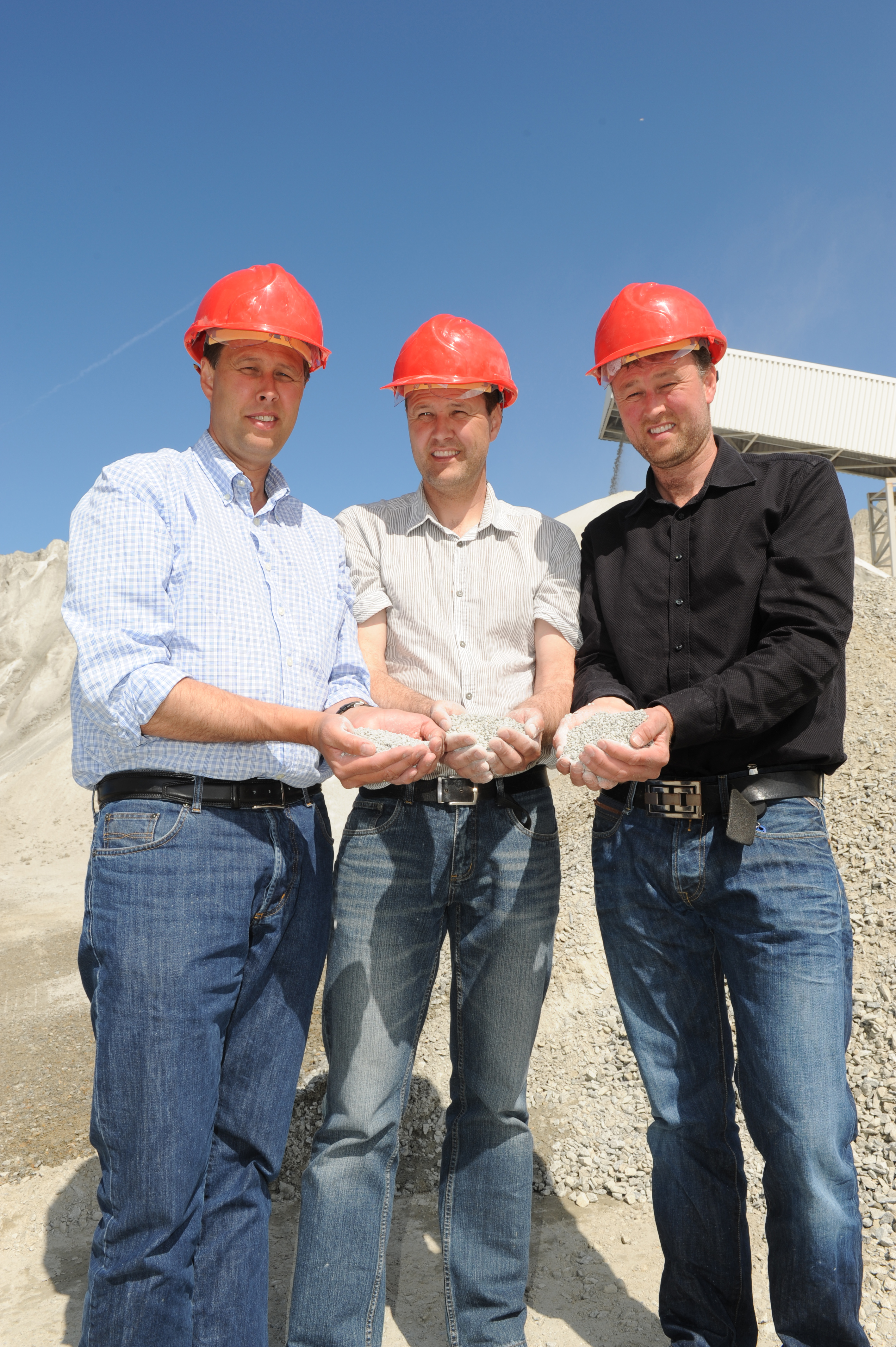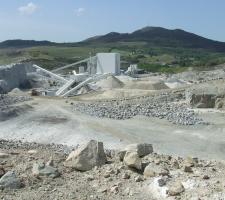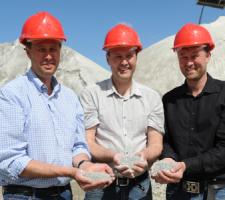
Natural sand is a limited resource but one Norwegian quarry operator is offering an alternative with industrial sand, which it claims is better than the real thing. Claire Symes visited Velde Pukk to find out more
If you arrive at Norway's Stavanger Airport right now, you may think you are on a building site, rather than an airport but the work marks a step change in the approach to concrete in Norway.
Part of the work includes construction of a 27,000m2 car park by precast manufacturer and contractor Spencon and it is the first project in the country to use manufactured sand in place of natural sand. This landmark project is the result of a far-sighted investment by the Velde Gruppen to create a new product that could become a necessary resource as sand reserves are depleted.
"With natural sand you work with the gradings that are available but industrial sand can be engineered to meet customer need," said Velde production manager Sven-Henrik Norman.
In order to meet the demand for sand now, and in the future, the company has recently installed a new Metso Minerals Barmac VSI crushing system with Buell air classifiers to manufacture industrial sand at Velde Pukk near Stavanger. The air classifiers separate the 0-2mm material into three products - coarse sand, medium filler which is the 63 to 500µm fraction and 0-63µm sand.
This fine sand is also used to give natural sand a better gradation curve to replace cement that is currently used for this purpose. The machined sand is a cheaper alternative.
Velde Gruppen also said that the use of machined sand is helping the company to gain asphalt market share based on quality but it is not yet able to command a higher market price. The main benefit is for concrete with minimal variation between mixes, which is especially important for self compacting concrete and flooring applications. It is also possible to customise the mix design and create smoother faces. Industrial sand is also used by the stone paving manufacturing industry.
This latest venture is part of the company's continued investment and expansion plan. The quarry produces 1million tonnes of material per year and has another 40million tonnes of reserves. The quarry was started by the three Velde brother's father in 1984 after his construction business needed aggregates for a specific project.
Velde Gruppen used to just produce construction aggregates but in the last four years the brothers have expanded the products produced at the quarry to include asphalt with the installation of a 1000tonnes per hour
The turnover of the company has grown in line with the level of investment going from NOK72million in 2006 to an anticipated NOK250million this year. In the same period the company has invested NOK200million and the number of employees has expanded from 40 to 90 people.
Production
The company does its own drill and blast work at the quarry using a mix of
The quarry operates 15m benches and blasts 3.5" diameter holes laid out to a 7.5 to 8m2 spacing using slurry explosives from Orica. The blast is deigned to produce material suited to the crusher inlet with a maximum size of 1.6m.
The quarry has one common control room for the crushing and screening operations, asphalt plant and concrete plant. With 6000tonnes of storage in the silos, the delivery of material to the truck loading, asphalt mixing and concrete plant is all automated. There are 10 silos in total, each with 600tonnes capacity to store eight products - 0-63µm, 63µ m-0.2mm, 0.2-2mm, 2-5mm, 5-8mm, 8-11mm, 11-16mm and 16-18mm. Recipes for standard mixes are stored to help with the automated selection process.
Investment strategy
The company had no contract in place before investing in the new industrial sand plant but Velde believed that there was a place for the product in the market and knew it needed to have the production in place to demonstrate the material capabilities.
"The new plant ensures that 100% of the quarries material can be used as a saleable product," explained Norman.
Establishing the industrial sand plant was a trial and error process and a steep learning curve. Velde also worked with the admix companies to ensure the material ideally suited ready mix design. "We are very satisfied with the results and have secured a number of industrial sand supply contracts as a result with more expected in the near future," said Norman.
The key elements of achieving the industrial sand quality are down to rock type, correct process equipment, control system, logistics, research and development. The granite at Velde Pukk is a medium grained granite which is homogeneous and the deposit has a microdeval score of five and PSV of 51. "Harder rocks tend to flake and require more energy to crush," said Norman.
"There are two main reasons why customers are opting for industrial sand - consistent moisture content and standardised gradation and shape." It was this that helped Velde Gruppen to win the major contract to supply Spencon - the company has access to natural sand deposits but is using industrial sand in its precast concrete products because it allows the company to reduce the volume of cement used, smoother surfaces with minimal porosity and low water absorption.
Natural sand usually has 3 to 10% moisture content, where as industrial sand is 0.2 to 0.5% due to processing and silo storage. Velde actually adds water to take the moisture content to 3% to make the sand more cohesive and stable.
In precast concrete manufacturing, it is common to add warm water to give elements a high early strength - the lower moisture content means that precast operators can add more warm water to the mixes and use 10 to 15% less cement. There is also some evidence that the industrial sand creates a better bond to the pretensioning wires.
"The benefits of manufactured sand is having a stable aggregate in terms of moisture content and also the possibility to engineer the gradation curve," said Spencon plant manager Tore Aasen. "It offers more control of the products with less waste and use of less cement - maybe around 10% less. We first started to use manufactured sand on 17 August last year and now only use manufactured sand - this is the future of aggregates." In total, Spencon has used 10,000tonnes of SCC precast elements made using the manufactured sand for the four level car park - the contract is due to be completed in September and the car park open in December.
"There is no difference for the customer but industrial sand is helping to lower the production costs," said Aasen. "I cannot reveal the figures but I am happy."















